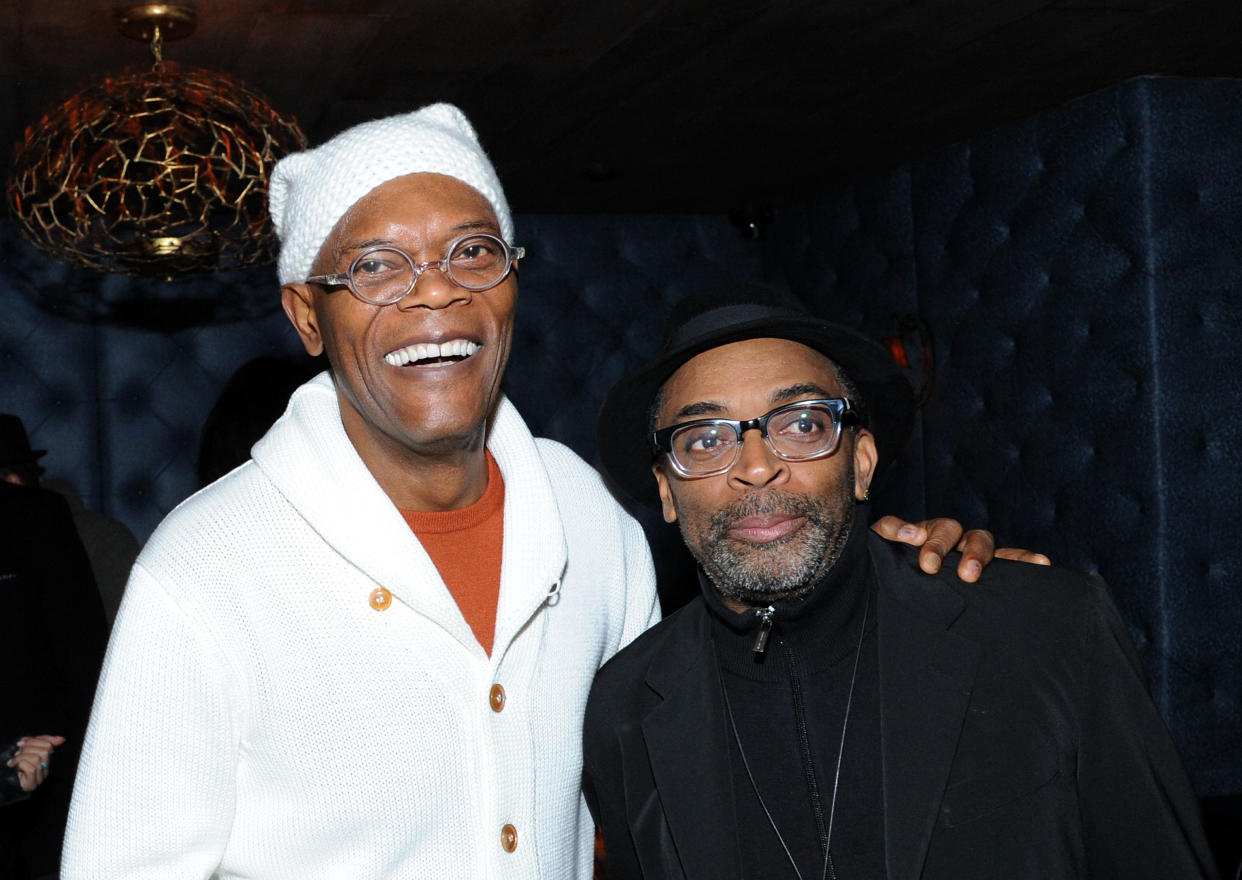Samuel L. Jackson Details Spike Lee Feud Over ‘Malcolm X’ Casting

- Oops!Something went wrong.Please try again later.
- Oops!Something went wrong.Please try again later.
- Oops!Something went wrong.Please try again later.
Samuel L. Jackson is detailing his 1992 falling out with Spike Lee that took more 20 years to rebuild.
Jackson, in a wide-ranging interview with Vulture, shared that the creative split from Lee was due to a “Malcolm X” salary dispute which ultimately led Jackson to turn down the role of Baines in the historical epic. Albert Hall was cast instead.
More from IndieWire
As Paramount+ Loses Billions, 285 FAST Channels Bring Reliable Cash to Paramount Global
The Barbenheimer Experience, Reviewed: Do These Movies Actually Work as a Double Feature?
“I actually read with most of the people who auditioned for ‘Malcolm X,'” Jackson said, after starring in Lee’s “Jungle Fever,” “School Daze,” and “Do the Right Thing” prior. “I was supposed to be the guy that turned Malcolm X on to Islam in prison. I forget who played that role. But it was still down to that Spike Lee scale-plus-10 salary thing. I was like, ‘I’m not going to work for no scale-plus-10.'”
The “scale plus 10” salary refers to a pay rate for actors with a minimum daily or weekly pay rate established by the Screen Actors Guild. The “plus 10” refers to the 10 percent of an actor’s pay that goes toward their agent.
Jackson continued, “I used to call my agent every day to see if I had any auditions, callbacks, whatever. And my line to her every day was, ‘Hollywood call?’ She was like, ‘No, sir.’ So one day I called, she said, ‘As a matter of fact, yeah they did. You just won an award at the Cannes Film Festival.’ And I’m like, ‘What? For what?’ She said, ‘”Jungle Fever.”‘ I said, ‘They don’t give supporting actor awards at Cannes.’ She’s like, ‘They made up one for you.’ Get the fuck out of here! ‘And consequently, these people in Hollywood want to see you for this movie ‘White Sands.'”
Jackson said, “So I took ‘White Sands’ instead of ‘Malcolm X’ and we [Spike and I] fell out.”
“White Sands” was released in 1992 and co-starred Mickey Rourke and Willem Dafoe. “Malcolm X,” which was released the same year, went on to be Oscar-nominated for Best Actor for Washington and Best Costume Design for Ruth E. Carter.
Jackson credited Lee’s “Jungle Fever” for launching his Hollywood career.
“‘Jungle Fever’ got me into Hollywood. The majority of Black people in America at that time, at a certain economic strata, had a [character] Gator in their family,” Jackson said, recalling that he had recently left rehab before taking on the role of an addict. “I was clean, but I was still detoxing. I had done my 28 days. When I got to set, I really didn’t need makeup. The first day I was on set, I was going to craft service, and the Fruit of Islam ho were guarding the set were trying to run me out ‘cause they thought I was a neighborhood crackhead.”
Lee and Jackson later mended their relationship in part over a shared love of Park Chan-Wook’s “Oldboy,” which Lee remade in 2013 and Jackson starred in.
“[Our] wives would interact often, and we would all end up going to dinner together,” Jackson told Playboy at the time. “Our relationship healed over those dinners and conversations. He told me at dinner he was going to remake ‘Oldboy’, and I was like, ‘Can I be in it?'”
Jackson said working with Lee again “was just like we’d never stopped. He’s very efficient, knows what he wants and doesn’t get in my way artistically–whatever I come with, I come with, and it’s cool.”
Best of IndieWire
Sign up for Indiewire's Newsletter. For the latest news, follow us on Facebook, Twitter, and Instagram.

